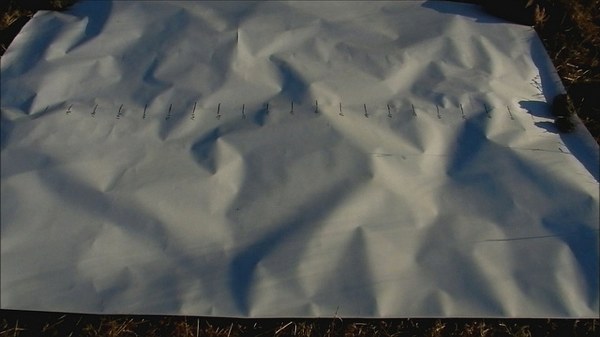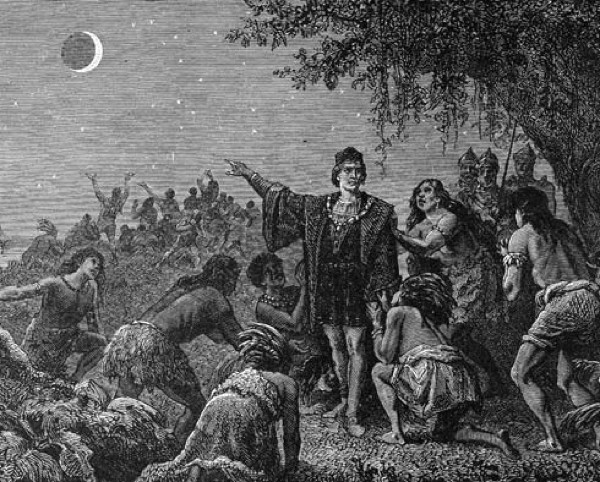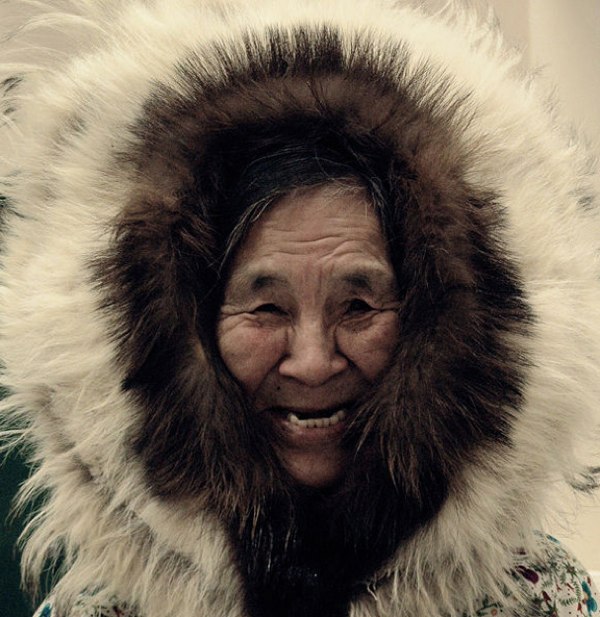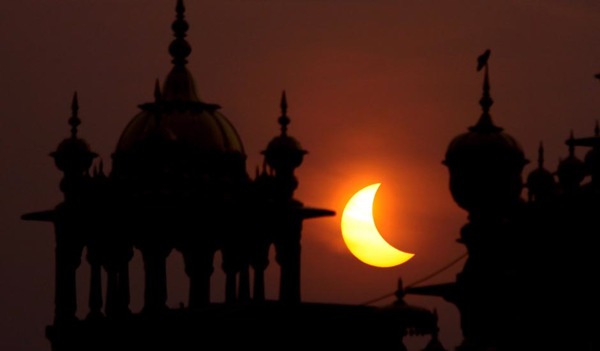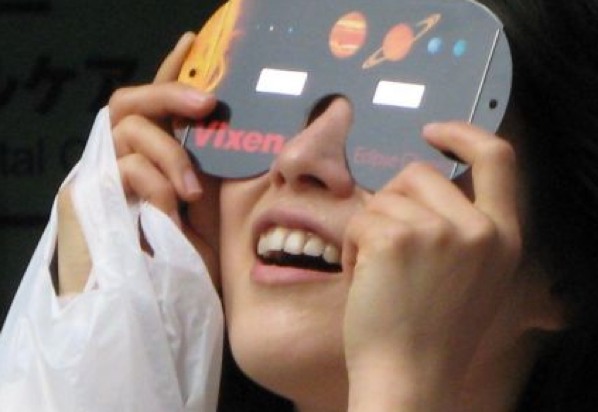Animals’ body-clocks get all messed up During major solar eclipses, birds and insects will often lapse into an eerie silence. Those that generally sleep at night will actually begin to get ready for a nap, while nocturnal animals begin to wake up and move around. Since the darkest part of an eclipse doesn’t last too long, the daytime animals wake up as soon as it’s over and the nocturnal animals try to go back to sleep. They’re all very confused – especially as the earth becomes colder and winds start to rise. But some will take it in their stride and sit and enjoy the spectacle.
Rows of shadows move rapidly across the ground in an eclipse “Shadow bands” are an effect of major solar eclipses. If you ever see them, you won’t forget them. They look like clear, dark grey strips of paper lined up row after row, with about the same amount of open space between the strips as they are wide. When the event starts, they seem to be simply lying on the ground. And as the moon makes its way across the sun, the bands seem to move quickly towards you over the ground. Naturally, this freaks people out.
Medieval folk believed that sex during an eclipse would result in ugly demon-filled children Europeans in the Middle Ages thought that you should never get it on during a lunar eclipse, because any “moon children” would be born with ugly demons inside them. Then you’d have to pay for their food and shelter, when all they’re going to be good for is being burned at the stake. A modern superstition also has it that a pregnant woman shouldn’t touch her belly during a lunar eclipse. Doing so will cause the baby to be born with a birthmark – the size of which depends on the force of the touch.
Some Latin Americans believe red panties and a safety pin will prevent birth defects Talking of birth, the Indians seem to take the cake on this one: one newspaper recently told pregnant women not to go out during the eclipse, to stop them giving birth to a blind baby or one with a cleft lip. One woman laments: “I did not take any precautions when I was pregnant during a lunar eclipse. I cut an apple even though I had been warned not to touch any sharp objects; My son was born with a missing finger.” Not to be outdone, some pregnant women in Mexico and other Latin American countries still wear bright red panties with a safety pin stuck through them during solar eclipses – a practice that stems from ancient Mayan and Aztec beliefs. But instead of panties and a safety pin, the ancients used red string and an arrowhead.
Columbus tricked native chiefs into giving him food by predicting an eclipse In early 1504, Christopher Columbus was stranded for months on the island of Jamaica. He’d turned the natives against him by being nasty and rude, so they refused to help him out with food supplies. Columbus was more than a little hungry, so he thought of a ruse that would impress the locals. After using his tools to work out that a lunar eclipse would soon occur, he told the native chiefs that unless they gave him what he needed, he’d darken the moon. The chiefs refused – and of course, the moon went dark right on cue. The natives freaked out, and gave cunning Columbus all the choice cuts until he was rescued.
Eskimos turn their utensils upside-down during an eclipse If you live in the cold north, take note: disease is meant to strike the Eskimo people whenever the women forget to place their utensils upside-down during an eclipse. Next time you’re snowed under in your igloo during an eclipse, chowing down on fresh fish steaks – don’t forget to turn your spoons, forks and knives upside-down. This a sure way to stop the sick sun and moon from poisoning you by shining their rays onto your cutlery. Best to hide chopsticks to avoid confusion.
Thai people bang pots and set of fireworks to scare away spirits Many in Thailand think that an eclipse is a sign of the end of the world. In old times, it was thought that an evil spirit was to blame for the sun’s “going away” – so people would bang pots and set off fireworks to scare away the spirit and bring back the sun.
Some Indians wash their eyes out with urine India is a great country when it comes to eclipse beliefs: some think that you shouldn’t sleep with wet hair, or it might turn you into a lunatic (a word which has the same Latin stem as lunar – still more proof that the so-called lunar effect has been around for a long time). Some also think that you should take a bath before and after the eclipse, to wash away any evil spirits. And – get this – that you should wash your eyes out with urine, to stop your eyes from ever hurting again.
830 people chartered a ship to chase an eclipse If you see an eclipse once, you’ll want to see it again. Marcy Sigler knows the feeling. In 1972, she chartered a ship from New York to the waters off Nova Scotia, with no less then 830 people on board – just to see an eclipse. Two days later, at 3:47 p.m., the travelers saw a total eclipse in perfect weather. Crowded on the decks, the eclipse-hunters saw the black shadow of the moon coming towards them — a black shape, something like a tornado, changed the color of the sea to a deep purple as the moon flew across the sun.
Eclipse-chasers are called umbraphiles: “shadow lovers” People who chase eclipses seem to have a weird addiction to them that is hard to explain. There’s even a word for it: the addicts are called umbraphiles, or “shadow lovers”. Once every 16 months or so, this bunch of eccentrics will drop whatever they’re doing and hitchhike, drive, sail, and ride camels to the middle of nowhere – all to see “the shadow”. Every time there’s a major eclipse, you’ll see the same people that you saw last time.

